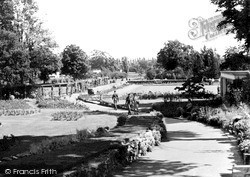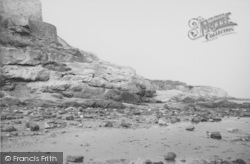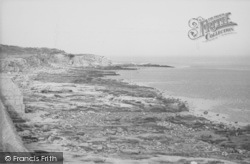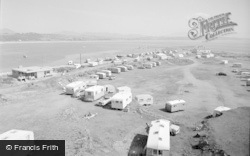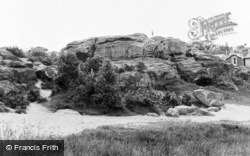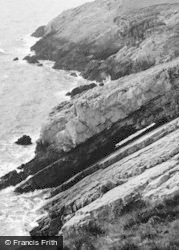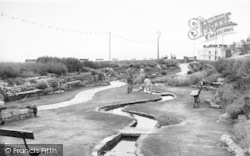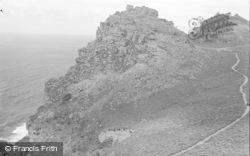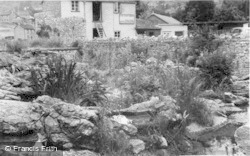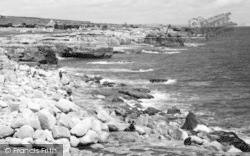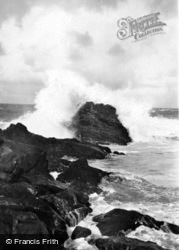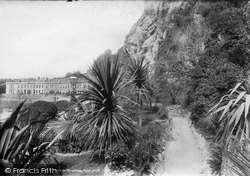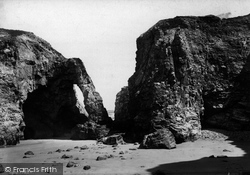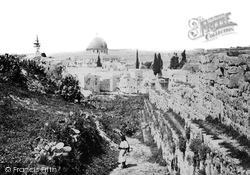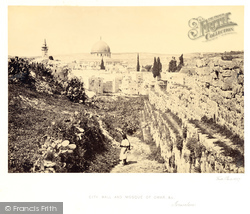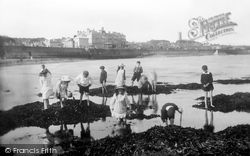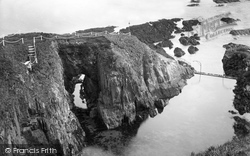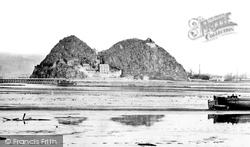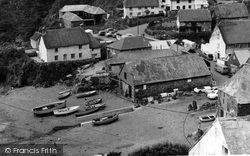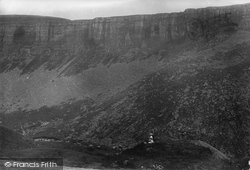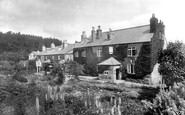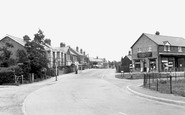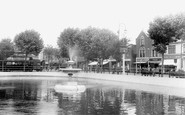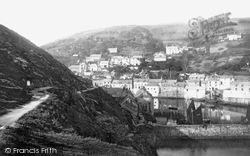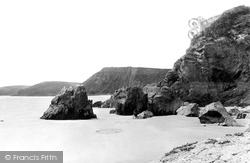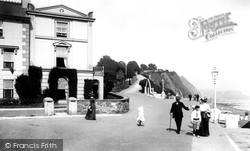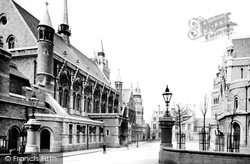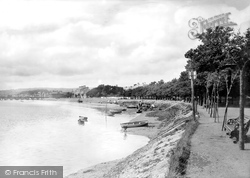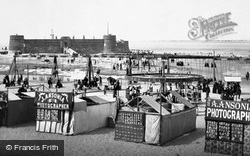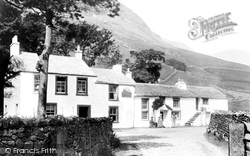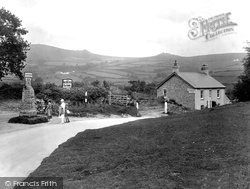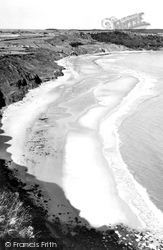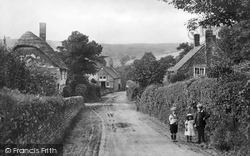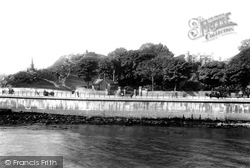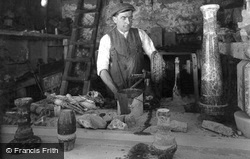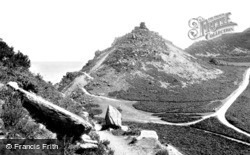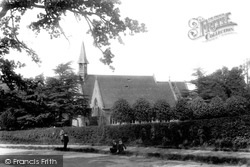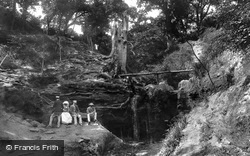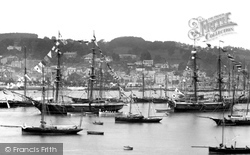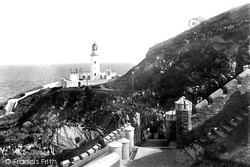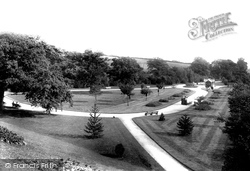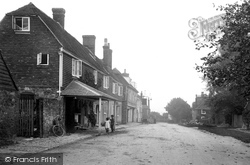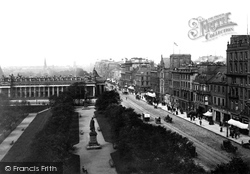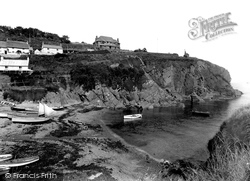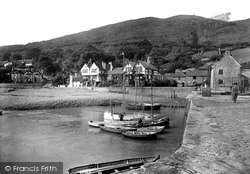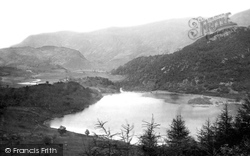Places
4 places found.
Those places high-lighted have photos. All locations may have maps, books and memories.
Photos
379 photos found. Showing results 141 to 160.
Maps
23 maps found.
Books
1 books found. Showing results 169 to 1.
Memories
690 memories found. Showing results 71 to 80.
Pinchaford Stables
Just wondering if anyone knows what happened to Pinchaford riding stables in Haytor? I seem to remember heading up to the Rock Hotel circa 1973/74/75 for a shandy! Some of the very best times... Ii remember Caroline ...Read more
A memory of Haytor Vale in 1974 by
46 Bridge Road, Cove
46 Bridge Road at Cove is very significant to me because I was born in Bridge Road, no 46, on 29th June 1943, in the photo of Bridge Road it is the second house on the left, opposite Cove Supply Stores, so I'm sure my mother would ...Read more
A memory of Cove in 1943 by
School Years
I also remember my first day at Ynysboeth Infants school, and unceremoniously being dragged there by my mother for the first time, because I didn't want to go to school. However, as I was happily greeted by the teacher on entering ...Read more
A memory of Ynysboeth in 1940 by
Beanfield Secondary
I was in that class at Beanfield Secondary and remember, Jim Drummond, Ray Shillitoe,Pete Bird and also Mick Hambly, Clive Evans, Ann Francis, Irene Mitchell, Jim Gardener, John Gamble, Michael Parker and others. I lived on the ...Read more
A memory of Corby in 1965 by
Triggered A Few More Memories
Waterloo in the 1940s to 1950s My early memories are of Waterloo where I used to live at Winchester Avenue until 1958. My father died there in 1989. On College Road there were air raid shelters which me and ...Read more
A memory of Waterloo by
Born In Fairford 1939 Left 1957 I Still Call It Home Prim Clements
My family moved to Fairford with Rev Gibbs? 1937, I always lived at Victory Villas, went to infants school, Farmors School and Cirencester Grammar School, worked at Busbys garage. ...Read more
A memory of Fairford in 1957 by
Memories Of Village Haircuts
Just before the 1960’s transformed our innocent lives, all us village boys had a limited choice of tonsorial art; indeed you could count the number of available haircuts (styles wasn’t a word used for men or boys) ...Read more
A memory of Sherington in 1960
The Keelings 1940 Evacuees
My sister, Joy, elder brother, Richard and myself, John Keeling, were evacuated to Llanharan in June 1940. After a short time Richard and myself were placed with a lovely old lady at 12 Seymour Avenue, Mrs Surridge. I ...Read more
A memory of Llanharan in 1940 by
The 1950s
Though I have some recall of the 1940s - eg starting school in 1948 at the age of three and a half and being reluctant to get off a rocking horse on the first day, it was the 1950s that really kicked in - to the accompaniment of songs ...Read more
A memory of Corwen in 1950 by
Frogs Newts & Ice
I used to visit my aunt & uncle who lived in this - as it was known to me - the posh area of Thornton Heath: it was even pronounced differently - where I lived we invariably but a "mate" on the end of everything. Anyway ...Read more
A memory of Thornton Heath by
Captions
442 captions found. Showing results 169 to 192.
Apart from some more houses, this scene is still familiar today, viewed from the popular cliff walk out to the Chapel Rock near the harbour entrance.
A boy is sat on a rock in the centre of the picture - are the shapes in the sand his handiwork?
The sea wall leads to the Parson and Clerk rocks, with the railway - surely one of the loveliest stretches of line in the country - running alongside.
The sea wall leads to the Parson and Clerk rocks, with the railway—surely one of the loveliest stretches of line in the country—running alongside.
The City of Plymouth has given its name to some forty other Plymouths around the English-speaking world.
It was bought in 1879 by William Rock, a son of the town who had made his fortune in London before returning home. He gave the site to the town, and the park was named after him.
Though the photographers' stalls were harmless enough, the beach by this date had acquired a reputation for cheap and tacky sideshows, gambling, brawling and drunkenness.
Wasdale and Wastwater can be said to have seen the birth of the sport of rock climbing, and climbers from all over Britain stayed at local hostelries such as the Victoria Hotel.
Although surrounded by a patchwork of fields, Widecombe is a real moorland village, and the skyline is dominated by the tors: centre right is Bonehill Rocks, to the left is Bell Tor and on the
The wide, low-lying, sandy beach here was formed by structural faults.
South Warren Hill rises to form the skyline in this picture, taken from the highway between Rose Cottage (left) and Rock Cottage (right).
A 1904 view of the pier esplanade, castle rock and the new castle. There were no trams serving Dunoon, but there were a number of horse-drawn omnibuses working between the West and East Bays.
Serpentine - one of the many rocks that make up the complex geology of the Lizard Peninsula - is soft, attractive and easily worked into ornaments and even furniture.
This 'convulsion of nature', close by Lynton, was highly popular with Victorian artists and writers, and other early seekers after the sublime and picturesque.
'The large cellars or caves beneath the town, dug out of the sand rock, are highly curious.
A Victorian party linger beside the 'dripping well' in the deep wooded Fairlight Glen.
Queen Victoria much admired the town of Dartmouth and its beautiful estuary, recording in her journal that '...the place is lovely, with its wooded rocks and church and castle at the entrance.
Douglas Head Lighthouse was erected in 1892, replacing the sixty year old Red Pier light. In 1786 Douglas harbour lighthouse had been destroyed during a storm and not rebuilt.
The Victorian landscape gardeners could not resist their desire for order and symmetry, but the park is diverse.
Winchelsea is located on a sandstone rock, similar to the site of Rye, and was occupied in 1289 after Old Winchelsea was finally overwhelmed by the sea.
The Edinburgh Cafe at number 70 did not serve alcohol, and there was a Turkish baths at number 90. For those with a sweet tooth, Edinburgh rock was available at Ferguson's.
The rugged nature of the cliffs is typical of the Cornish coastline, where at low water level jagged rocks continue to cause hazards to the unwary mariner.
The substantial stone jetty is made from locally-quarried rock. The different styles and materials used in the construction of the surrounding buildings indicates how the little port developed.
This view shows the northern end of Thirlmere, looking towards Great How Wood and the Castle Rock of Triermain.
Places (4)
Photos (379)
Memories (690)
Books (1)
Maps (23)


